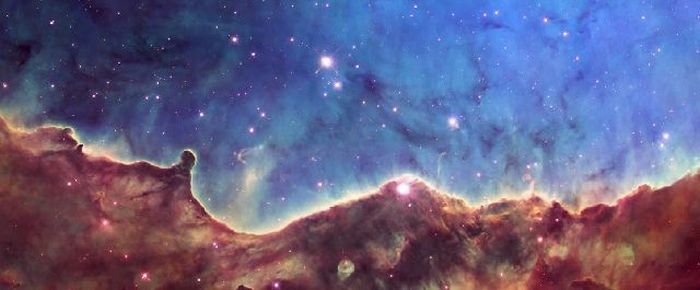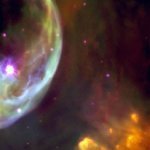
-
dark matter question
Looking at it now, it seems that the effects of the black hole are too localized to really matter. Still, if black hole had no influence at all, why are there so many spiral/disc/etc. shaped galaxies? I always assumed it had to do with influence of the black hole, but could it be the natural result of galaxy's rotation? And if so, would that mean that original galaxies were all roughly spherical, similar to the dark matter halo? But if it is the case, why is the Large Magellanic Cloud an irregularly shaped galaxy? Could it have been a small spiral galaxy that got distorted by the Milky Way, or there is a lower mass limit on spiral / disc galaxies?
-
Domobran7 changed their profile photo
-
dark matter question
But considering that one of reasons why galaxy rotates is the black hole at its center (and black holes formed naturally all seem to rotate, as far as I'm aware), and the dark matter is somewhat responsive to gravity, wouldn't that incite dark matter halo to at least somewhat flatten and rotate? Or the effect is simply too weak?
-
Was the universe "dark" before the eyesight
All of these are merely different functions of touch, because ultimately all of these use the same receptors. Just like sight relies on eyes only, but you can see colour, size, shape, distance, motions, velocity and so on. I do not think it fits in a sense as in "something that allows us to sense the world around us". Rather it would be a system that allows us to actually utilize input from our senses. Precisely. Well, reality really is an illusion created by our brain. But things that illusion is based on are real enough.
-
Was the universe "dark" before the eyesight
Not sure if I understand what you are asking but... we evolved senses to make use of the inputs in our surroundings. Human senses are sight, hearing, touch, taste and smell. All of this is based on inputs - light, sound, matter - that had existed long before there were any humans, or indeed any life. Light was there, there just wasn't anybody to observe it. And this has implications for science. Light has a finite speed (cca 300 000 km/s). This means that watching the world around us is already a type of time travel - even if it is a fraction of a second, we never actually see things at the exact moment they are happening at. And at interstellar distances, this delay is significant. What this means is that light is essentially a "message in a bottle" from our past. If we watch at a galaxy that is a billion light years away, we see it as it was a billion years ago. And from that, we can extrapolate what our own galaxy was like a billion years ago. One of these answers is probably to a question you hadn't asked, but...
